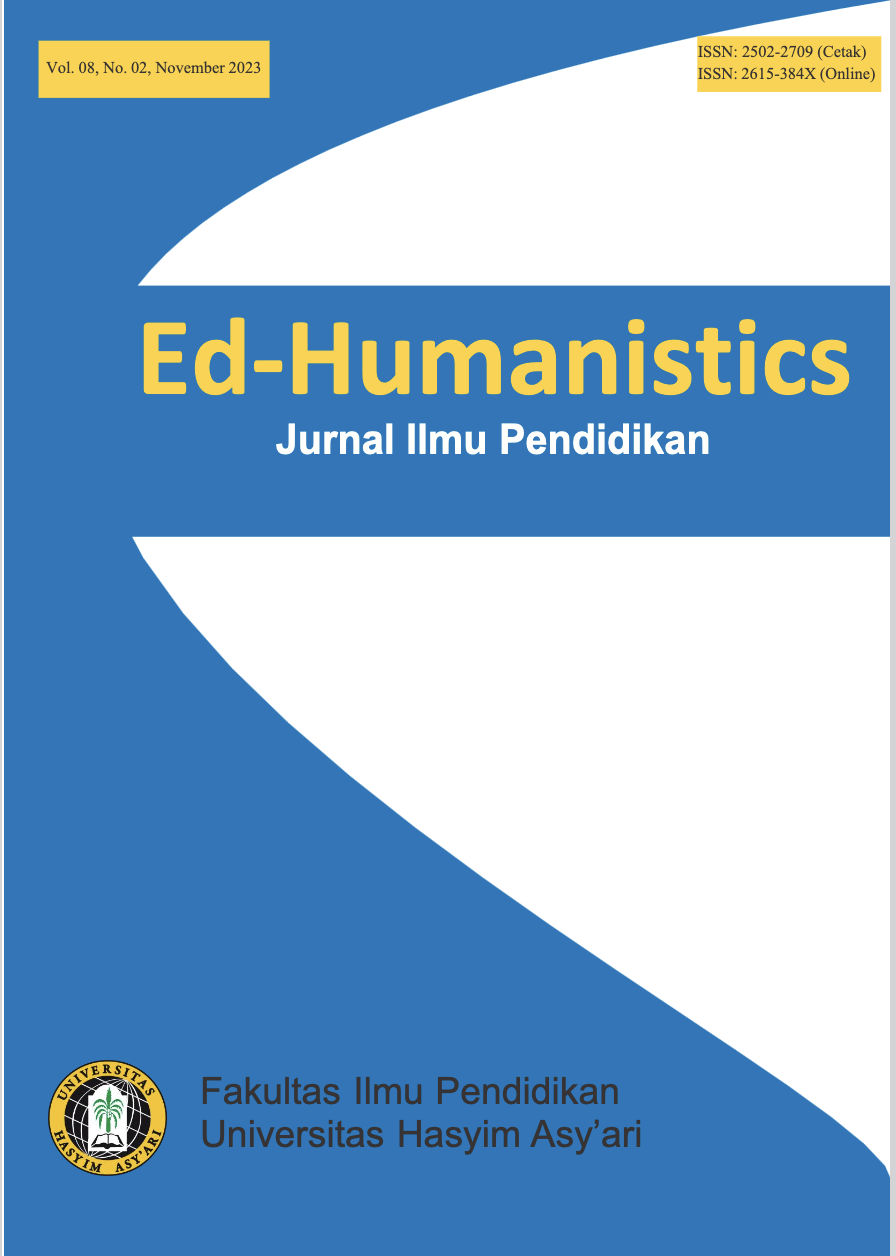Pengembangan Tes Diagnostik Kognitif Materi Kalor dan Perpindahan Kelas VII SMP
DOI:
https://doi.org/10.33752/ed-humanistics.v8i02.5109Abstract
Tes diagnostik adalah tes yang digunakan untuk mengidentifikasi kekuatan dan kelemahan siswa pada proses belajar. Hasil tes dapat digunakan sebagai dasar untuk merencanakan tindakan lanjut. Hasil analisis kebutuhan alat yang digunakan guru memungkinkan untuk menerapkan tes diagnostik untuk menemukan masalah atau kesulitan belajar siswa. Tujuan penelitian ini satu untuk melihat dan menjelaskan pengembangan tes diagnostik untuk materi kalor dan perpindahan. Tujuan kedua untuk melihat dan menjelaskan produk hasil pengembangan setelah proses validitas empiris dan teoritis. Model ADDIE. Penelitian pengembangan mencakup 5 tahapan analyze, design, development, Implementation dan Evaluation. Hasil pengembangan tes diagnostik didapat dari validitas empirik dan validitas teoritis.Validitas empiris diperoleh dari 3 validator ahli materi, media dan guru IPA yang menunjukkan skor rata-rata 98,4% memenuhi kriteria sangat valid. Hasil validitas teoritis diperoleh dari siswa. Validitas soal diperoleh 8 butir soal valid. Dan realibilitas soal diperoleh 8 butir soal. Hal ini menunjukkan bahwa produk yang dikembangkan layak untuk digunakan dalam pembelajaran.
Downloads
Downloads
Published
Versions
- 2023-11-30 (2)
- 2023-11-28 (1)
How to Cite
Issue
Section
License
Copyright (c) 2023 Muhammad Asy’ari

This work is licensed under a Creative Commons Attribution-ShareAlike 4.0 International License.
1. Proposed Policy for Journals That Offer Open Access
Authors who publish with this journal agree to the following terms:
- Authors retain copyright and grant the journal right of first publication with the work simultaneously licensed under a Creative Commons Attribution License that allows others to share the work with an acknowledgement of the work's authorship and initial publication in this journal.
- Authors are able to enter into separate, additional contractual arrangements for the non-exclusive distribution of the journal's published version of the work (e.g., post it to an institutional repository or publish it in a book), with an acknowledgement of its initial publication in this journal.
- Authors are permitted and encouraged to post their work online (e.g., in institutional repositories or on their website) prior to and during the submission process, as it can lead to productive exchanges, as well as earlier and greater citation of published work (See The Effect of Open Access).









 Template
Template


